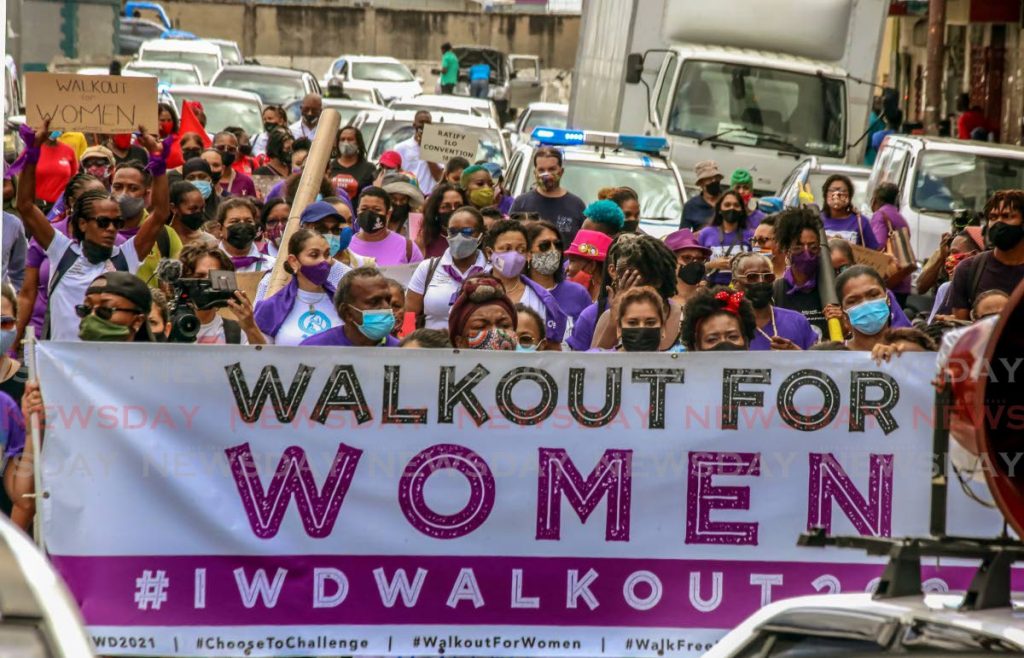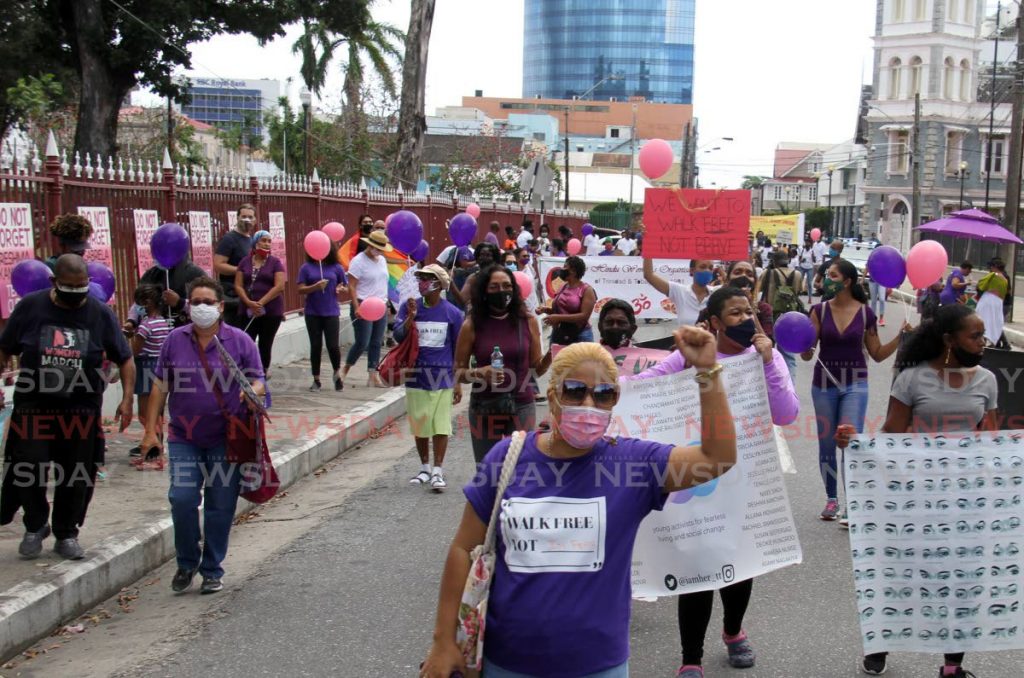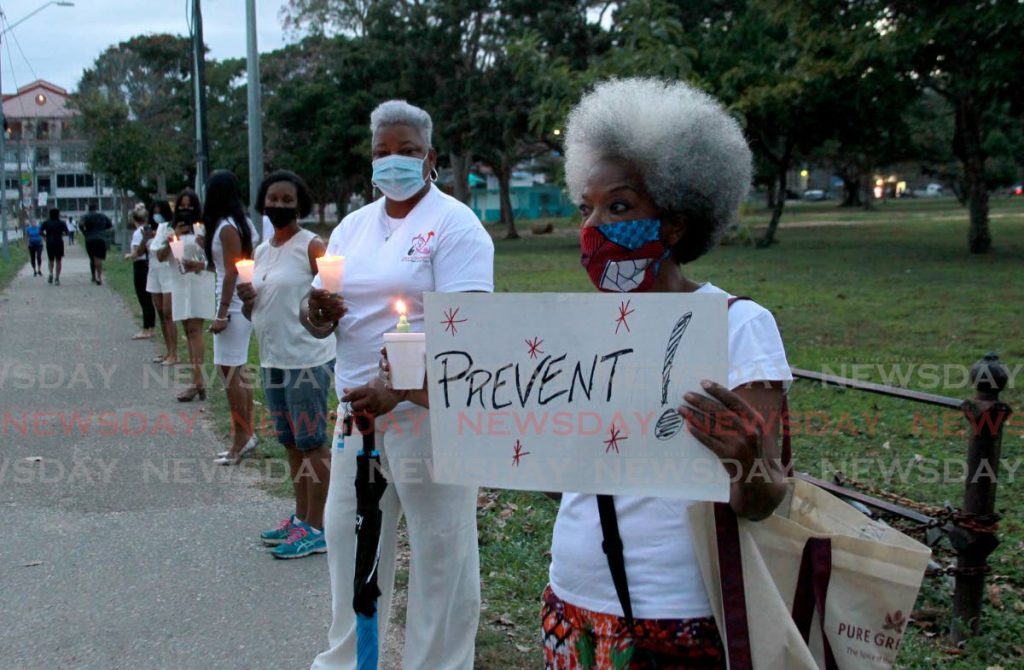March on

AT A TIME when progress on a range of social-justice issues is slow, it is easy to be cynical about the outpouring of protests since the murder of Andrea Bharatt.
Why no protests, some ask, for people like Ashanti Riley, 18, who was found dead in a stream after going missing weeks before Ms Bharatt’s murder?
Or Ornella Greaves, 30, a pregnant mother from Beetham Gardens who was recording a protest with her phone when she was killed in suspicious circumstances?
Perhaps Ms Bharatt’s death was the last straw.
But when bad things keep happening, when crimes against women seem never to go away, when all of this is met with apparent indifference or inaction by the powers that be, what use is a protest or a placard or a well-worded petition?
Even President Paula-Mae Weekes has chimed in.
“Marches and vigils driven by the emotion of the moment are unlikely to continue indefinitely,” Ms Weekes said in her message for International Women’s Day. “That energy needs to be harnessed so that it becomes a permanent force to be reckoned with.”

We agree. It’s time for the seven-day-wonder syndrome to be eliminated.
At the same time, we disagree with any suggestion that “emotion” or marches or vigils serve no useful purpose.
All over the world, street-level movements have been the scourge of the powerful. This year alone, we have seen protests in support of opposition figure Alexei Navalny in Vladimir Putin’s Russia, marches in Myanmar against a military coup and farmers mobilised in Narendra Modi’s India.
It is frequently the tactic of strongmen to dismiss such protests as frivolous, to actively smear them as disruptive or dangerous and to deem them the result of foreign interference or somehow improperly motivated.
Just as it was the President’s prerogative to choose the timing of her comments on Ms Bharatt (Ms Weekes had been criticised for being silent too long), so too is it the right of every individual citizen to contribute as they choose to a social cause. If the extent of that contribution is the simple act of being seen in public to demonstrate her or his support of a cause, who are we to judge these acts of courage?

The person willing to wave a banner in the street at a peaceful, organised protest makes an equal contribution to that of the advocate who works behind closed doors to lobby strategically from within the corridors of power.
In fact, both exercises should go in tandem. Supposedly “strategic” advocacy in the shadows looks a lot like silencing without a component that is visible.
A lawful protest is as clear and eloquent a message as a carefully penned letter to one’s MP. Activism has many faces. Every little counts. Instead of targeting protesters, we should ask why, still, some are not hearing their message.


Comments
"March on"